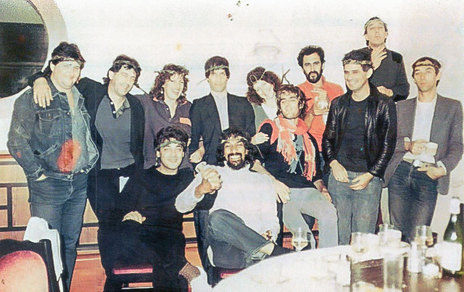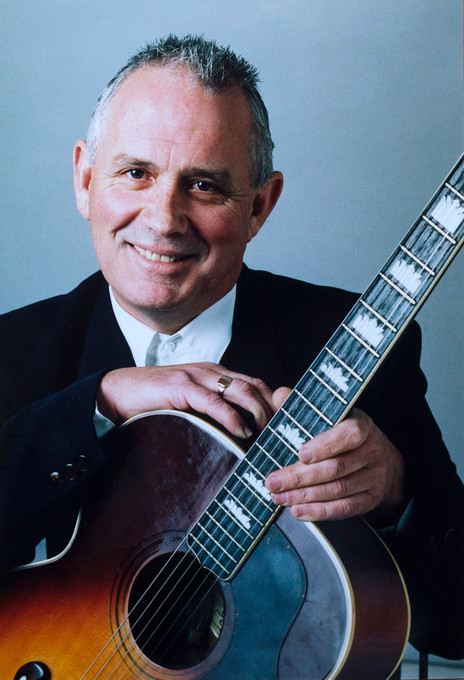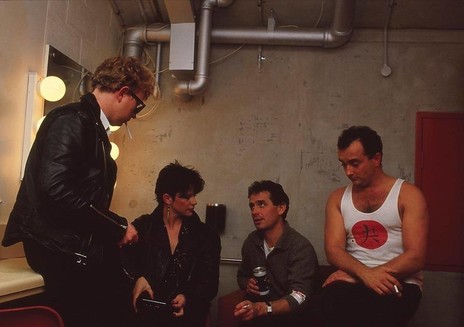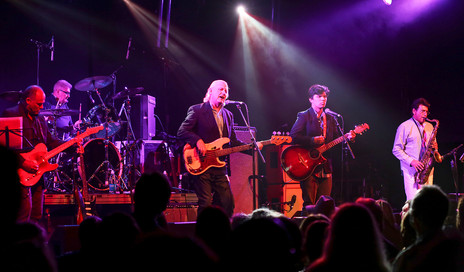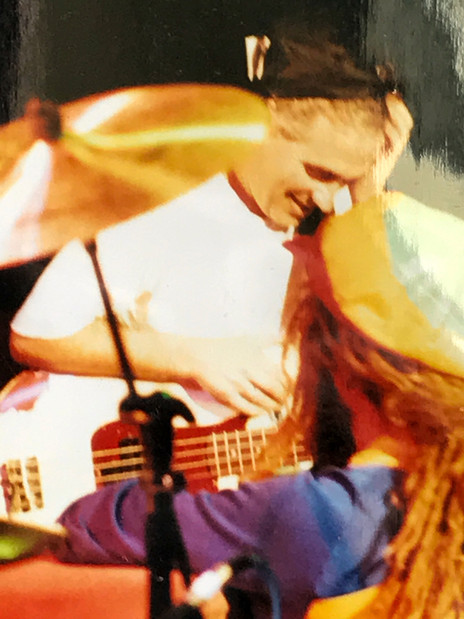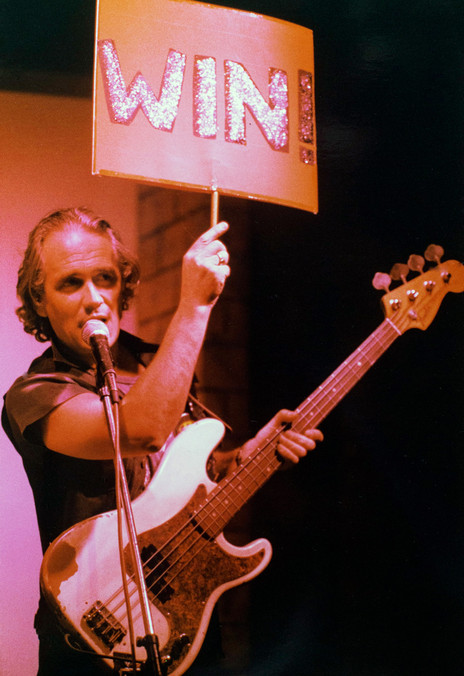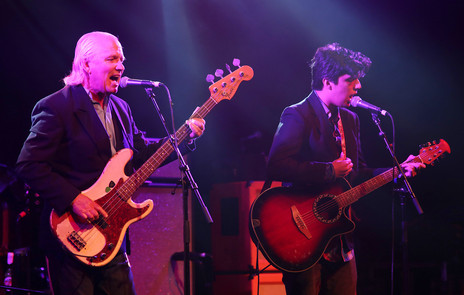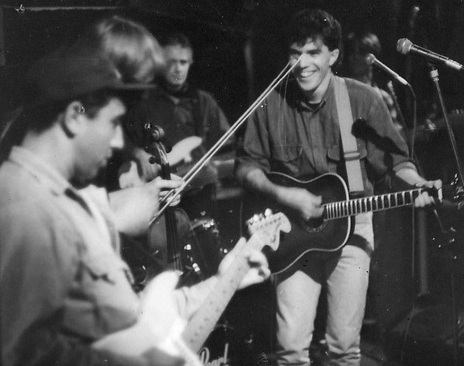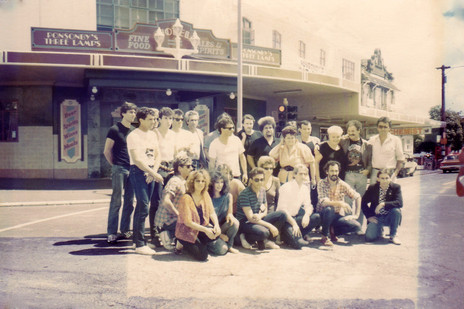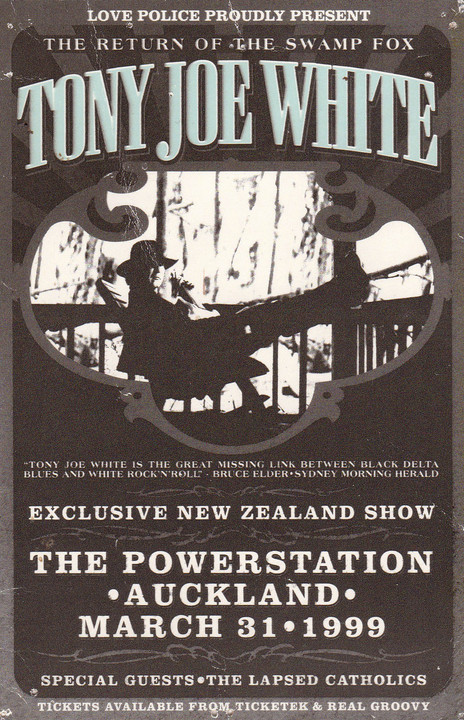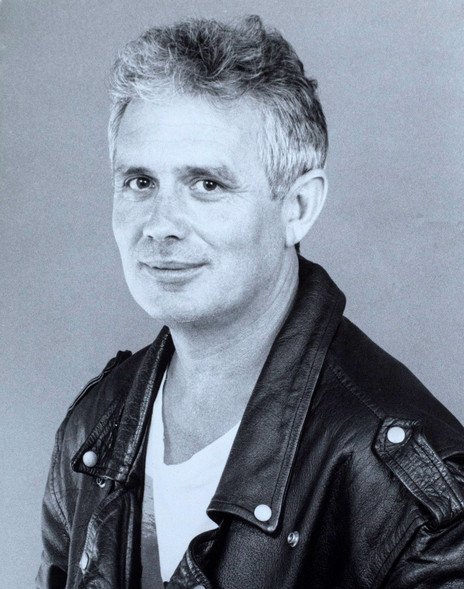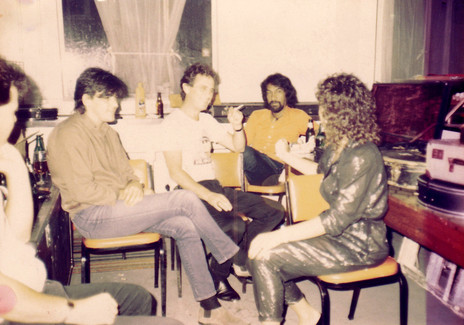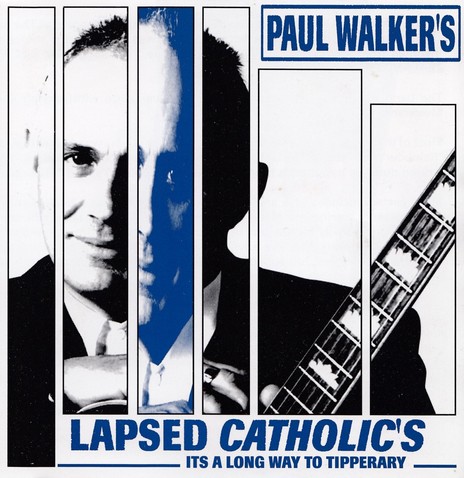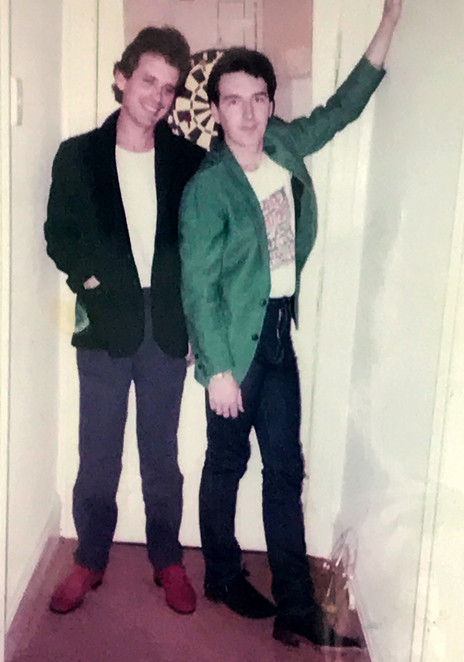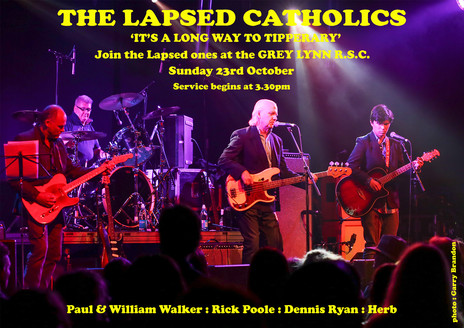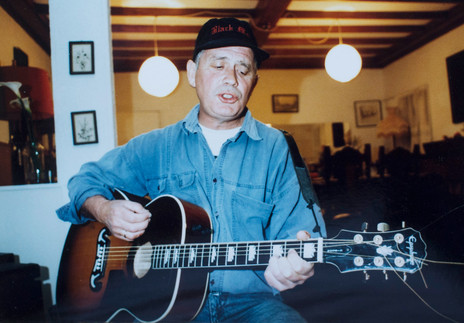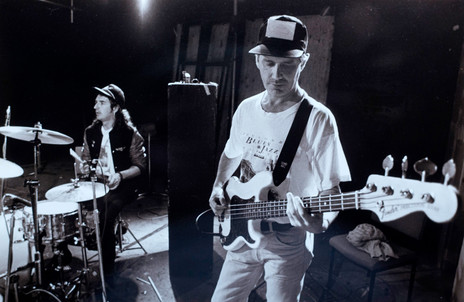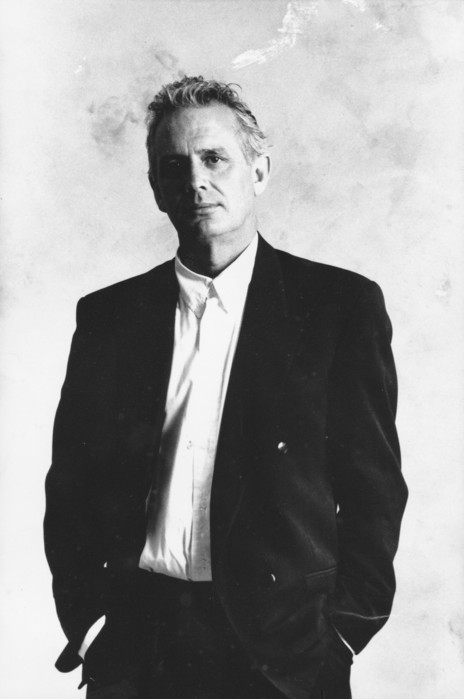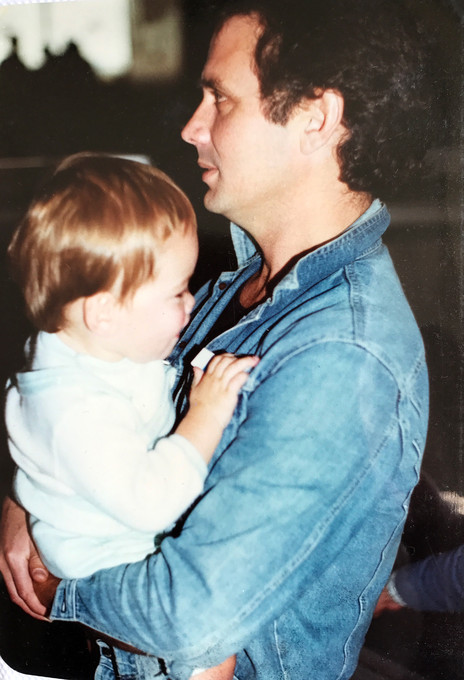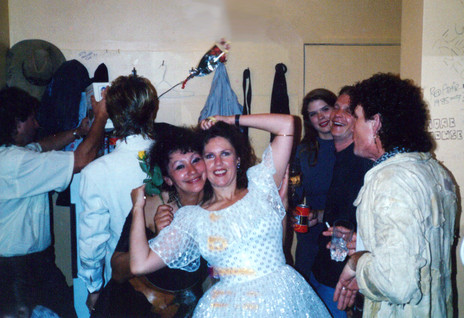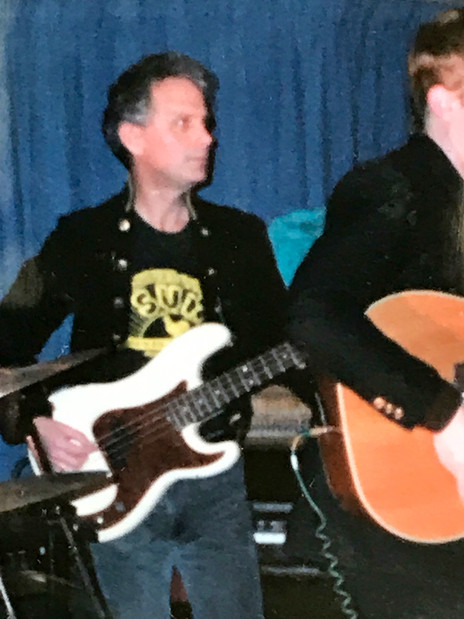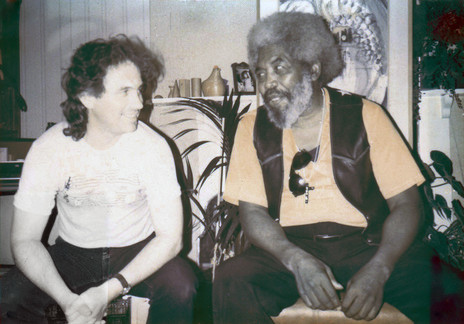Walker had played ukulele as a child, progressing to guitar before settling on bass. He played with a variety of bands around Hamilton and in the 1970s he was bassist with covers band Odessa; handling the band’s bookings, he became manager by default. Mike Knapp was a young budding drummer in the mid-1970s: “I used to see Odessa at the Hillcrest Tavern, Paul was on bass and seemed to be the band manager. I was a young buck, keen to learn, bending his ear for advice. Most older guys would tell you to fuck off but Paul didn’t, he was always friendly and forthcoming. Our friendship started from there, 1976-77. And cool: Paul always looked good, he had that Elvis look, he held himself together really well.”
By 1980 Walker had edged closer to the business side of the music industry.
By 1980 Walker had edged closer to the business side of the music industry, hustling gigs, negotiating with pub managers, establishing venues and developing relationships with many of the musicians who were to feature in his career, people like Sonny Day, Mike Farrell, Tommy Ferguson and Midge Marsden. He booked acts around town and also had his hand in the popular Lady Hamilton nightclub. Lady Hamilton was owned by his brother-in-law Chris Cole (Walker married Cole’s sister, Ann Marie) and Walker was to continue to have working relationship with Cole long after the marriage had dissolved.
One Hamilton-based band which impressed Walker was The Tigers, featuring the aforementioned Mike Knapp, along with Barry Saunders, Nick Theobald, Wayne Mason and Steve Lunn. Walker took over the band’s management and with a recording contract with EMI Australia, The Tigers headed to Sydney in January 1981. Sydney was hard going but Walker managed to get the band onto the books of the Harbour Agency; support gigs with Australian Crawl, the Divinyls, Mondo Rock and other top acts followed. At year’s end, the band unceremoniously sacked their manager and Walker returned to Hamilton.
In Hamilton Walker took over the bookings at the Te Rapa Tavern, promoting a growing circle of musicians, notably Midge Marsden and Sonny Day. Hammond Gamble remembers getting the call to perform at the pub. “I think it was the first time I met Paul. He was already well thought of by Midge and Sonny, Josie Rika and that crowd. It became the nucleus of the All-Stars.”
In 1983, now Auckland-based, Walker promoted a one-off concert at The Gluepot, All-Stars Play The Blues, which became a semi-permanent fixture. Musicians to pass through included Midge, Sonny, Josie, Walter Bianco, Willie Dayson, Neil Edwards, Mike Farrell, Paul Hewson, Dave McArtney, Dennis and Grant Ryan (The Flying Ryans) and Beaver. Beaver and Paul married in 1986.
Hammond Gamble: “The money in the All-Stars wasn’t great but it was okay, there were so many of us to spread it around. Having said that, most of us weren’t making much money anyway and we certainly played to bigger crowds than if we had played alone. The All-Stars played all over the country and some of the crowds were bloody huge.”
In 1985 the All-Stars line up featured Wilko Johnson (ex-Dr Feelgood), who Walker managed to contact in England and coax into participating.
In 1985 the All-Stars line up featured Wilko Johnson (ex-Dr Feelgood), who Walker managed to contact in England and coax into participating. Stevie Ray Vaughan jammed with the band at Mainstreet Cabaret. The All-Stars nucleus also provided the backing behind the likes of Marc Hunter and Renee Geyer. Walker toured other offshore artists – Big Moose Walker in 1983, Koko Taylor in 1988, Carey Bell in 1991. He had a working relationship with Billy T James and in 1988 he began booking comedians, even attempting a comedy festival. (It bombed; he was clearly a man ahead of his time.)
In 1985 Walker became bookings manager at New Zealand’s top music venue, The Gluepot. He introduced the annual Ponsonby Jazz & Blues Festival and worked deals with promoters such as Looney Tours’ Doug Hood and Real Groovy’s Kevin Byrt. In 1987, managing his wife and ever the hustler, he took Beaver to London where he secured a season at the famed Ronnie Scott’s jazz venue, also arranging the recording of her performances. Back in New Zealand, he negotiated an album deal with RCA Records, the album Live At Ronnie Scott’s winning Best Jazz Recording at the 1988 RIANZ Awards.
In 1988 the Walkers became part-owners of the Java Jive Café, an already-popular Ponsonby venue. Although he was to retain an occasional relationship with The Gluepot, the clash of interests dictated that he forego his position as the hotel’s bookings manager. In 1992 Beaver and Paul sold their interests in the Java Jive; the marriage, too, came to an end. Paul Walker spent the next three years managing The Powerstation, co-owned by his ex-brother-in-law Chris Cole. In 1998 Cole lured Walker to Singapore, and later Penang, to assist in his Asian entertainment interests.
Paul Walker remained in Asia for three years, returning to New Zealand with a new wife, Yvonne. They managed a bar (and venue) in Takaka and, briefly, a café on Waiheke Island. In 2003, while touring with Mike King, Yvonne died tragically young. With two young children, William and Isobel, Paul Walker became a solo father, his main focus in the years since.
Not that he left the entertainment industry behind – he promoted the first Fight For Life event at The Powerstation, toured comedian Mike King, managed the St James Theatre (for Chris Cole), and in 2000 even recorded an album of original songs, It’s A Long Way To Tipperary, credited to the Lapsed Catholics. Mike King recalls his years with Walker with great fondness:
“Paul was always ahead of the bell curve, he saw the potential of big tours, always thinking outside the box, and he knew how to strike a deal. What I loved about Paul was that he never overstepped his boundaries; he might have an opinion but he never told me how to do my job. He looked a bit dodgy, though! He dressed like a used-car salesman, leather jacket, his briefcase was a kete. He was always someone that I could phone for advice, and good advice. He was a bloody good operator – selling out two shows at the St James! That takes a special talent.”
Over recent years Walker has retained a low profile, parenting and part-time teaching, music and Māori Studies, and occasional performances with the Lapsed Catholics, which has featured musicians such as Mark Heke, Gordon Joll, Rick Poole, Dennis Ryan and Paul’s son, William Walker. In 2008 he put together a remarkable line-up for the Sonny Day Memorial Concert and in 2012 he helped organise the Gluepot Reunion Concert. He was a stage manager for the 2009 and 2010 Parihaka International Peace Festivals. In 2004, with Nick Theobald, he co-wrote a best-selling Maori phrase book, Instant! Māori. It’s been a quite remarkable career.
--
In 2016 Paul Walker was diagnosed with aphasia, which impairs language skills and the ability to communicate clearly, hence the lack of quotes in this profile. He died on 28 October 2020. As someone who had a proud association with Paul, I can testify that he was one of the good guys, honest and honourable, and, as Mike King says, a bloody good operator.
